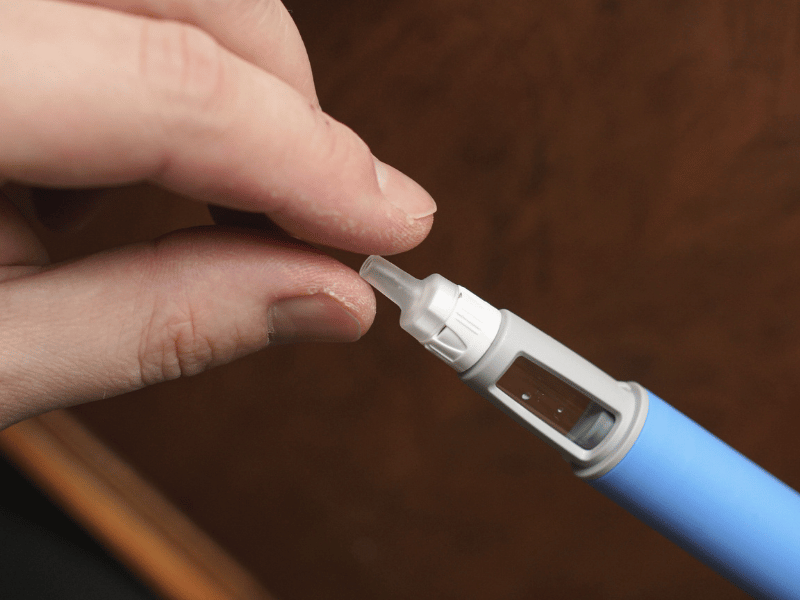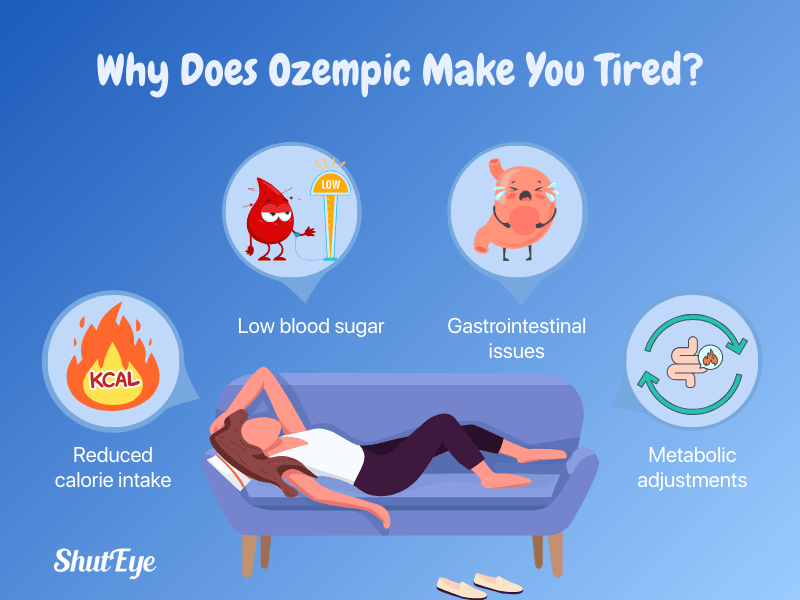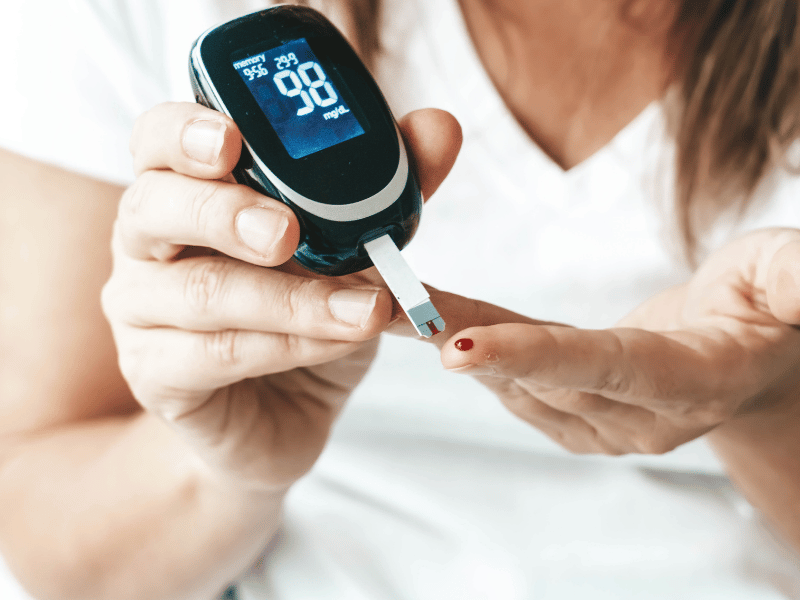


Ozempic is an injectable medication that has been a popular topic on social media platforms like TikTok. Besides being a medication for type 2 diabetes, many people including famous celebrities have decided to take it for weight loss. However, one common question among users is: Does Ozempic make you tired? While Ozempic helps regulate blood sugar and support weight loss, some individuals have reported experiencing fatigue as a side effect.
In this article, we’ll discuss why ozempic may be making you feel tired and ways to manage this fatigue.

Ozempic is a weekly injectable prescription medication that is used to manage and improve blood sugar levels in adults with type 2 diabetes. It can also be used to reduce food cravings, increase insulin production, and lower the risk of heart attack, or death in patients with type 2 diabetes and a known heart disease [1], [2].
Ozempic contains an active ingredient known as semaglutide or GLP-1. This natural compound is released from your gastrointestinal tract once you consume a meal, stimulating insulin secretion. It also inhibits glucagon release, slowing gastric emptying such that the rate of glucose circulating is reduced [3].
Ozempic can also help to terminate food intake signals in the brain, curbing appetite and aiding weight loss [4].
Some individuals may experience side effects when it comes to taking ozempic. The most common side effects of ozempic include [5]:
Ozempic may also cause possible serious side effects such as:

Currently, there is still a lack of research as to why Ozempic may cause fatigue. However, some possible explanations include:
Sleep problems like insomnia are not a known side effect of ozempic. However, some may experience sleeplessness while taking the medication. A study that was done analyzed comments and videos that were posted on social media related to the use of GLP-1 receptor agonists and found some of them linked to insomnia and sleep issues.
However, as this study is not well-controlled, it is hard to confirm whether GLP-1 receptor agonists such as ozempic are a direct cause of insomnia. Experts suggest that these sleep issues may be linked to factors such as gastrointestinal discomfort, blood sugar fluctuations, or the medication’s influence on hormones that regulate alertness [6], [7].
If you’re experiencing fatigue while taking ozempic, here are some ways to help you manage it:

Quality sleep plays a crucial role in overall health, particularly for those managing diabetes or using medications like Ozempic. Lack of sleep can disrupt hormone regulation, increase stress levels, and impact insulin sensitivity. To improve rest, establish a consistent sleep schedule by going to bed and waking up at the same time each day.
Additionally, you may create a relaxing bedtime routine by limiting screen time, reducing caffeine intake in the evening, and engaging in calming activities such as reading or meditation. Maintaining a comfortable sleep environment is also important to further enhance sleep quality.

A balanced diet is essential for maintaining energy levels, supporting metabolic health, and managing blood sugar. Prioritize nutrient-dense foods, such as lean proteins, whole grains, healthy fats, and fiber-rich vegetables, to promote satiety and stabilize blood sugar levels.
If you experience digestive discomfort while taking Ozempic, try eating smaller, more frequent meals to ease digestion. Consulting a registered dietitian can also help in creating a meal plan that aligns with your health goals.
Regular physical activity is beneficial for weight management, cardiovascular health, and blood sugar control. Engaging in moderate-intensity exercises, such as walking, swimming, or cycling, for at least 150 minutes per week can help improve insulin sensitivity and overall well-being.
If you are new to exercise or experiencing fatigue from medication, start with low-impact activities and gradually increase intensity.

Keeping track of blood sugar levels is essential for individuals managing diabetes or using glucose-regulating medications. Regular monitoring helps identify patterns and allows for timely diet, exercise, and medication adjustments. Aim to check blood sugar consistently, such as before meals and bedtime, to get an accurate picture of how your body responds throughout the day.
Although Ozempic may be an effective medication for those with type 2 diabetes and for those looking to lose weight, it’s important to note that fatigue can be a possible side effect for some people. Additionally, factors such as reduced calorie intake, blood sugar fluctuations, and metabolic adjustment could further contribute to this tiredness.
One way to avoid fatigue and improve your sleep quality naturally is by using the ShutEye® app. Our app offers personalized sleep-tracking insights, relaxing sounds, and expert sleep tips to improve your sleep. Try ShutEye® for FREE today!
Beabout, L. (2024) Does Ozempic cause insomnia? [online]. Available at: https://www.singlecare.com/blog/does-ozempic-cause-insomnia/
Health Hub (2024) Semaglutide Injection (Ozempic®) [online]. Available at: https://www.healthhub.sg/a-z/medications/semaglutide-injection-ozempic
Novo Nordisk (2024) Possible Side Effects of Ozempic® (semaglutide) Injection [online]. Available at: https://www.ozempic.com/how-to-take/side-effects.html
Novo Nordisk (2025) What Is Ozempic® (semaglutide) Injection? [online]. Available at: https://www.ozempic.com/why-ozempic/what-is-ozempic.html
Novo Nordisk (2025) Once-weekly Ozempic® (semaglutide) injection mechanism of action [online]. Available at: https://www.novomedlink.com/diabetes/products/treatments/ozempic/about/mechanism-of-action.html
Sleepopolis (2024) Can Ozempic Impact Sleep? Social Media Study Finds Theme of Ozempic-Related Sleep Issues [online]. Available at: https://sleepopolis.com/news/ozempic-sleep-related-issues-on-the-rise/
Touchstone, L. (2024) How do drugs like Ozempic work for weight loss? [online]. Available at: https://mcb.illinois.edu/news/2024-07-09/how-do-drugs-ozempic-work-weight-loss